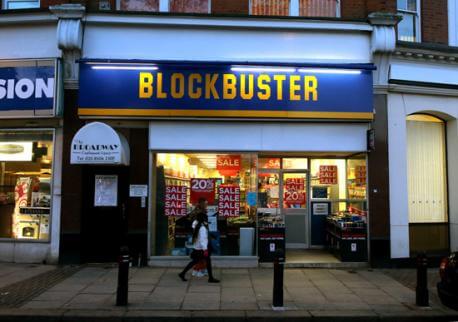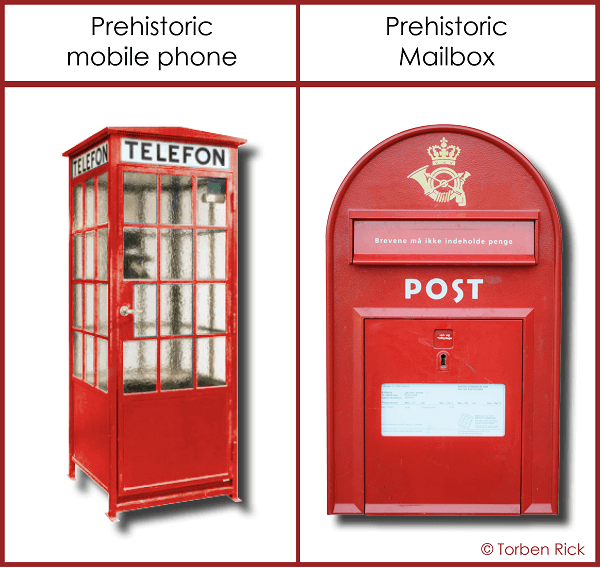Disrupted by new innovations, technology and methods
Just five years ago the world was a very different place and the next five years will no doubt unleash new products and services. Here are a handful of things that either will be gone completely or on their last breath, disrupted by new innovations, technology and methods.
Video rental
Ten years ago, thousands of Blockbuster Video stores occupied buildings like this in many countries, renting DVDs and selling popcorn. Today, they’re virtually all gone – killed by video streaming services.
It’s really difficult to understand that a company like Blockbuster is out of business considering once upon a time it had approximately 60.000 employees and over 9.000 stores. But disruption is sweeping!
USB sticks
According to Ericsson’s mobility report 70 percent of the world will be using a smartphone in 2020. Mobile data networks will cover 90 percent of the population.
With cloud services like Apple, Box, Dropbox, Google and Microsoft offering near-unlimited storage at near-free prices, there’ll be little need for storage devices taking up room in the pocket. Not to mention the increase in standard storage for mobile devices in the next five years.
The end of cash
The emergence of alternative payment technologies – including credit and debit cards, as well as a myriad of new electronic systems – have eaten into cash’s once dominant share of the payments space.
Nobody is going to use cash in 10 years, right? Not quite. It’s tempting to forecast the demise of cash. In fact, people have been predicting the end for physical money for many years. With the rise of credit cards and contactless payments the death knells have only gotten louder.
The bottom line: the outlook of wallets and cash is tenuous, but the growth possibilities of digital payments are endless.
Cable-TV
Disruption is coming to the TV industry and there will be a new set of distributors leveraging fundamentally different cost structures to the old regime. For millions of TV users fed up with outrageous fees provided to cable services provider streaming services are slowly becoming “good enough” alternative. The phenomenon is called “Cord-cutting”.
Brick-and-mortar music retailers are dying
The web has already disrupted plenty of industries – now the time has come for many brick and mortar music stores. They are facing increasing competition from online streaming services like Spotify and Tidal. Its time to say goodbye to the music stores – A piece of history is going away
Where will superman get changed
Telephone booths have not only served as superman’s change room but, for years, have been the only source for people to connect with their loves ones. But with more and more people using mobile phones and the internet, payphones are declining in use and popularity.
The telephone booths was not failed technology under any circumstance. It just became obsolete with the popularity of cell phones and internet communication services.
More and more post boxes are being removed in many countries because of falling volumes. Is this the end coming to the post box as well?
Paper-based processing
Paper-based signatures and paper-based processing – physically needing to print, fax, scan or overnight documents for reviews, approvals, decisions and/or signatures to complete a transaction – are fast-becoming archaic in today’s digital world. In the future: “cloud agreements” to actively manage any transaction.
The remote control
Building separate hardware for a remote control will just no longer make any sense. It will be taken over by mobile apps.
Short URL & Title:
Disrupted – Things that have disappeared or will disappear — https://www.torbenrick.eu/t/r/gta
Share it:
If you enjoyed this article, please take 5 seconds to share it on your social network. Thanks!










About The Author
Torben Rick
Experienced senior executive, both at a strategic and operational level, with strong track record in developing, driving and managing business improvement, development and change management. International experience from management positions in Denmark, Germany, Switzerland and United Kingdom